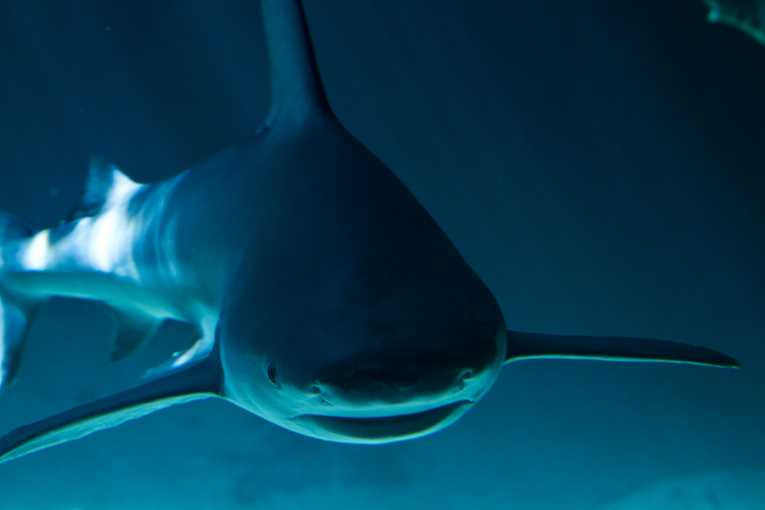Pressures on marine environments - from rising sea temperatures and overfishing to pollution and oils spills - is taking an increasingly heavy toll on a variety of marine species. This week, officials in Australia announced that sharks are in "big trouble" on Australia's Great Barrier Reef, and throughout the world's oceans. At the same time, a new study funded by the National Fish and Wildlife Foundation and the Offield Family Foundation, outlined threats to various populations of sea turtles, and offered a framework for identifying and monitoring the conservation status of marine turtles by dividing them into "spatially and biologically distinct marine turtle Regional Management Units (RMUs)".
Although humans instinctively fear sharks, the predatory fish have perhaps more to fear from humans. "There is mounting evidence of widespread, substantial, and ongoing declines in the abundance of shark populations worldwide, coincident with marked rises in global shark catches in the last half-century," said Mizue Hisano, Professor Sean Connolly and Dr. William Robbins from the ARC Centre of Excellence for Coral Reef Studies and James Cook University. "Overfishing of sharks is now recognized as a major global conservation concern, with increasing numbers of shark species added to the International Union for the Conservation of Nature's list of threatened species," they said, in the latest issue of the international science journal PLoS ONE.
To arrive at these conclusion, the researchers developed a novel method for measuring decline among shark populations. The challenges related to monitoring sharks are numerous. "The simplest approach of looking at trends in fisheries catches doesn't work well for sharks," said Dr. Connoly. "First, many countries with coral reefs don't keep reliable records of catches or fishing effort. Second, around 75 percent of the world shark catch consists of illegal and unreported finning. Third, sharks may be caught, discarded, and not reported when fishers are targeting other species." He noted that estimating growth and birth rates is easy enough, but estimating deaths among sharks is far more difficult.
To overcome these limitations the research team developed some alternative methods, using statistical modeling to more accurately estimate population decline rates based on known birth and growth rates for various shark species. All of these methods yielded the same stark result: Shark populations are in free fall due to overfishing. The dire portrait of the current status of these apex predators offers some hope, however. "Our different approaches all painted a surprisingly consistent picture of the current state of population decline," said Mizue Hisano, "but also of the potential recovery of these species if they are adequately protected."
Unfortunately, the situation may not be as simple for threatened and endangered marine turtles. For one thing, the threats to their survival are not primarily due to deliberate fishing, and thus cannot be managed through simple bans designed to prevent overfishing. In fact, the threats to these ancient reptiles are myriad, and include loss of breeding grounds, predation of eggs by invasive species, deaths from encounters with human-generated wastes, and inadvertent drownings due to fishing practices, among other threats.
To better monitor and manage remaining populations, the new report, published in the online journal PLoS ONE, categorizes marine turtles according to their regional distributions and species; a classification called Regional Management Units (RMUs). Of the 58 turtle RMUs worldwide, 11 have been identified that warrant special attention, as they are the greatest risk of extinction. Researchers hope the RMUs will assist conservationists in setting priorities aimed at optimizing the survival of the animals.
Top Image Credit: © outsiderzone
href="https://earthtimes.org/environment/shark-finning/index.html">Shark Finning









